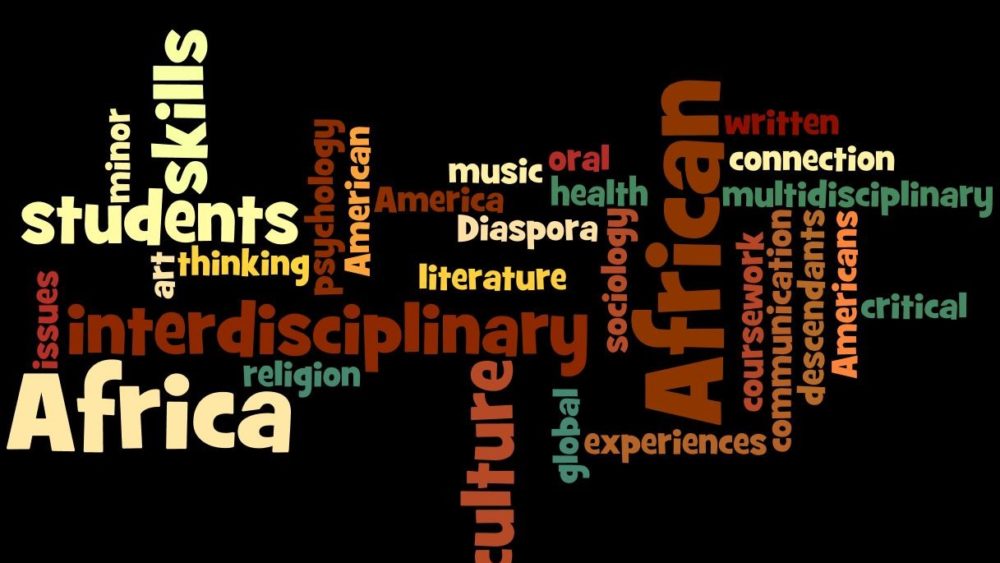Today there are opportunities to integrate information literacy into interdisciplinary fields such as Ethnic Studies and African American Studies. According to the World of Sociology, “African American Studies is an academic discipline that focuses on the cultural, political, economic, religious, and social development of Black Americans. First established in American universities in the late 1960s, African American Studies Departments were, in part, the product of student protests and the social climate created by the Civil Rights movement and the Black Power movement.”
In this interview, librarian A.J. Muhammad shares his thoughts and ideas on how he incorporates research and information literacy skills in his work at The New York Public Library’s Schomburg Center for Research in Black Culture.
Ray: Thanks for speaking with us! Can you tell us about your role as a research librarian and how you tailor information literacy for students in African American studies?
A.J.: As a research librarian, I assist researchers with reference questions in person, email, and telephone. Questions come in from researchers around the globe of all ages, and the challenging part is helping them find resources that don’t require they come in to access them in person. Luckily, the Schomburg Center has an excellent digital humanities program, which was launched in the early 2000s and that includes incredible free online exhibitions (including “In Motion: The African-American Experience,” “Lest We Forget: The Triumph over Slavery” and “Black New Yorkers”) about the Black experience throughout history.
Many of the public program events presented by the Schomburg Center are livestreamed, and it’s another great resource. Although some information about African Americans can be found in the usual commercial databases, I’ve often found that these databases are often incomplete regarding biographical entries and other information. These databases need to be supplemented with other resources for students in African American studies. Luckily, the Schomburg Center staff has collected both commercially published indexes and guides to resources about the Black experience and developed their own resources (some of which predate the Internet) that staff can use to help fill in the blanks about documenting people of African descent and their contributions to the world.
Ray: That’s interesting about databases that do not contain full entries about African American experiences. It is certainly something that needs to be addressed. Can you talk about some challenges you face when supporting information literacy in this interdisciplinary field?
A.J.: Some of the challenges I face supporting information literacy is how news events have been covered in the mainstream press as it relates to people of African descent. Bias continues to impact how news is reported, how history is told, and who is included and who is excluded. For example, The New York Times admitted that the obituaries they published tended to focus on white men and excluded women and people of color. This led to a project they have undertaken to correct these omissions. We also have to acknowledge bias in cultural criticism, which continues to be a point of contention by cultural workers, scholars, and others.
The challenge is being able to point to different sources so that researchers can use their own critical-thinking and literacy skills. I think we still need to develop even more resources that researchers can use regarding African American studies, such as biographical databases that exclusively focus on people of African descent or other people of color, because researchers ask for information about notable African Americans who have slipped through the cracks and are not mentioned in the press.
Ray: I see more opportunities for libraries and communities to collaborate and to provide accessible resources. Do you recommend any resources for instruction librarians to consider when thinking about the African American studies?
A.J.: The are several resources I recommend including databases such as ProQuest Historical African American Newspapers, and Readex databases that include African American and African periodicals and newspapers. Another resource I recommend is the Schomburg Center’s clipping file collection, which contains clippings about people of African descent and their organizations that date back to the 1920s through the early 21st century. The clipping file collection is in three parts. The first two parts are on microfiche, and the third part contains actual physical clippings; these are invaluable to researchers and the staff. The index to the first two parts of the clipping file collection have been digitized by ProQuest, so researchers can look at the index to determine if there is an entry for the person or topic they are researching. Topics in the third part of the clipping file collection (1988 through the early 2000s) are discoverable in the New York Public Library’s catalog.
Another great resource is the Kaiser Index to Black Resources, 1948–1986. Ernest Kaiser was a Schomburg Center staff member who developed an index that grew into a multivolume publication that researchers can use to find ready reference information on African Americans and topics in Black studies that were published in both the Black and mainstream press. The index also includes citations for select book chapters. Although many of the publications that are referred to in the Kaiser Index have been digitized, some of the publications are only available in analog format and are available at the Schomburg Center. I stand on the shoulders of former Schomburg Library staff who have come before me, and I am so grateful for their innovative ideas and ingenuity that has made life much easier for researchers.


A.J. Muhammad is a librarian in the Jean Blackwell Hutson Research and Reference Division at the Schomburg Center for Research in Black Culture. He was a 2018 American Library Association Emerging Leader and is also on the team of the OBIE Award-winning theater company The Fire This Time Festival, which presents the work of emerging, early career, and under-presented playwrights from the African diaspora.
Looking for an authoritative, trustworthy online reference source on African-American history? African-American History from Infobase covers more than 500 years of the African-American experience and offers a fresh way to explore the full spectrum of African-American history and culture.
ALSO OF INTEREST: Are your patrons discussing the Black Lives Matter movement and the critical issues it raises such as racism, diversity, civil rights, protests, freedom of expression, and global citizenship? To learn more about these vital topics, be sure to take a look at the wealth of relevant, unbiased content in Infobase products.

